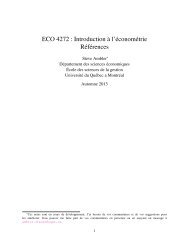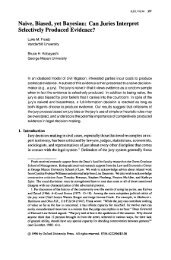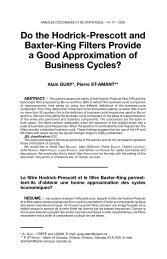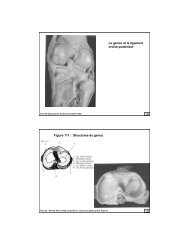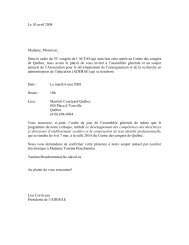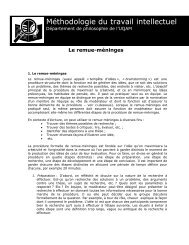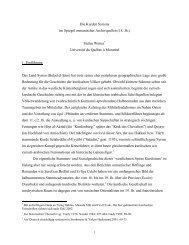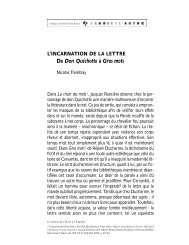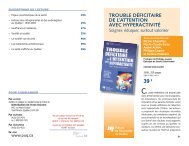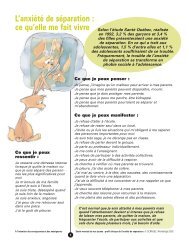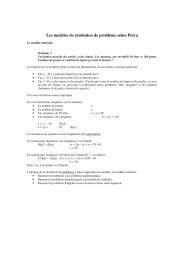Télécharger la revue en format "pdf". - UQAM
Télécharger la revue en format "pdf". - UQAM
Télécharger la revue en format "pdf". - UQAM
Create successful ePaper yourself
Turn your PDF publications into a flip-book with our unique Google optimized e-Paper software.
Sexological Review 1993, Vol. 1, No. 1<br />
EDITORIAL<br />
AlOS, HERALDING A NEW CODE OF SEXUAL CONDUCT<br />
In his novel The P<strong>la</strong>gue, Albert Camus wrote "There have be<strong>en</strong> as<br />
many p<strong>la</strong>gues as wars in history; yet always p<strong>la</strong>gues and wars take<br />
people equally by surprise." This is true of AIDS which, for over a<br />
decade now, has become one of the most serious health problems<br />
modern societies must face. It has become a pandemic that is forcing<br />
us to rethink the way we look at sexuality.<br />
The liberation of sexual mores witnessed by industrialized countries<br />
since the 1960s has come to an abrupt stop. In fact, society has ev<strong>en</strong><br />
reevaluated this position because of the increasingly obvious dangers<br />
associated with the risks of HIV transmission.<br />
Erotic expression, which is associated with freedom and pleasure,<br />
and which is not the only way the virus can be transmitted, now has<br />
the pot<strong>en</strong>tial of becoming a lethal weapon. The notion of prev<strong>en</strong>tion<br />
based on biomedical knowledge and responsibility is competing with<br />
antiquated notions of sin, guilt and chastisem<strong>en</strong>t.<br />
Are we th<strong>en</strong> witnessing the emerg<strong>en</strong>ce of a new sexual code<br />
imposed by the threat of AIDS and considering putting new limits on<br />
eroticism, basing ourselves on ethics of responsibility? A survey in<br />
Montreal has not come to the conclusion that an anti-sexual wave has<br />
swept the city with regard to premarital sex, extramarital sex or<br />
homosexuality with the adv<strong>en</strong>t of AIDS (Dupras et al., 1989). There is,<br />
however, a height<strong>en</strong>ed awar<strong>en</strong>ess of the new lethal pot<strong>en</strong>tial of<br />
sexuality and of the need to take precautions. In reality, though, not<br />
everyone puts these theories into practice.<br />
At the same time as this biomedical research is being conducted, a<br />
number of questions of a sexological nature are being dealt with<br />
concerning the sexual risk configurations and the underlying<br />
sociopsychological factors, be the y of ethnocultural dim<strong>en</strong>sions<br />
(Maticka-Tyndale and Lévy, 1992) or connected to lifestyles where<br />
s<strong>en</strong>sation seeking, alcohol and drug use all come into p<strong>la</strong>y (Lévy et al.,<br />
1993). This complex field where values, perceptions and behaviors<br />
have become <strong>en</strong>tangled needs a theoretical and experim<strong>en</strong>tal "sifting"<br />
which requires the work and understanding of sexology researchers<br />
and other professionals as well as health-care providers.<br />
We have chos<strong>en</strong> to discuss the AIDS problem in the first issue of<br />
the Sexological Review because of the need to better understand this



